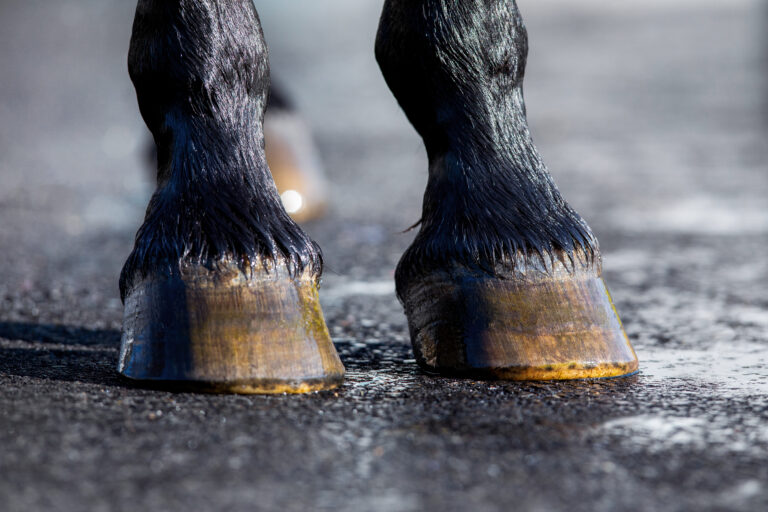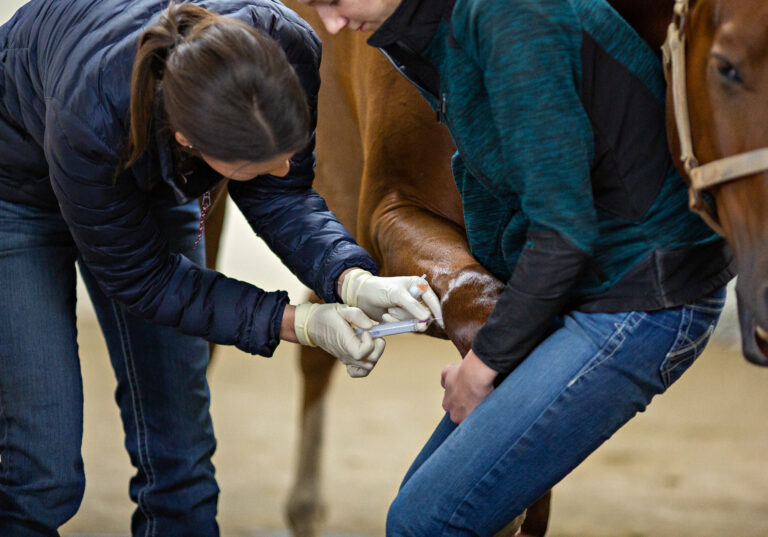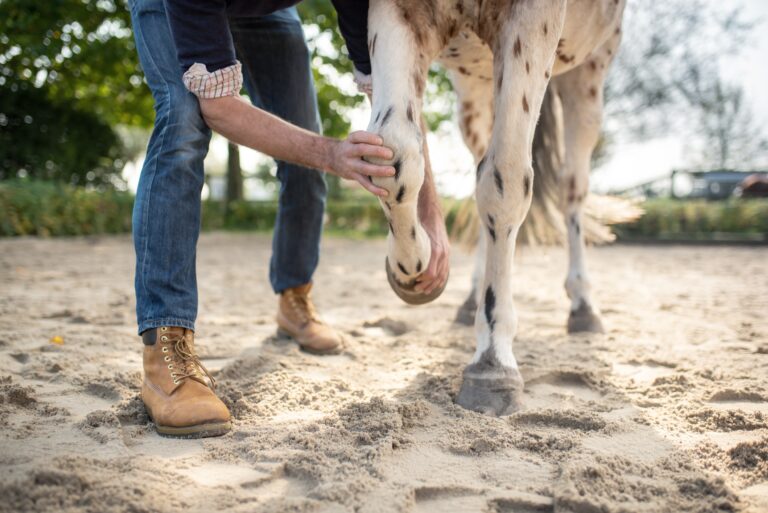
Veterinary team members are the backbone of any equine practice. Technicians and other support staff work hard to take care of patients, educate and reassure clients, and keep the practice running smoothly. However, they also face a number of challenges. From communication barriers and underutilization of skills to high stress levels, life on an equine team can be demanding—even lonely.
Recognizing these challenges, Merck Animal Health developed the LegUp Program, an initiative aimed at empowering and supporting veterinary support staff in equine practices. It was launched earlier this year, and the program is already garnering some great reviews from participants. Let’s take a closer look.
Creating Connections and Cultivating Skills
The LegUp Program is structured around educational content meetings that are complemented by small group discussion sections. While participants value the content modules, they’re also enthusiastic about the opportunity to connect with their peers.
Sue Novik, RVT, of Starwood Equine Veterinary Services, says it’s this combined approach that sets the LegUp Program apart. “I can hear about a new skill or viewpoint in a presentation, think about it, and apply it to my work or life,” she says. “Then, I have the opportunity to troubleshoot specific scenarios and hear how things work in other practices from my peers.”
This sense of community is a major draw for many participants. The small-group discussions allow for meaningful conversations, fostering a sense of belonging that can be rare in the sometimes isolating world of equine practice.
“It was easier to talk about the issues we face in our day-to-day lives within this career and feel like we are not alone in some of the issues we are faced with,” says Morgan Passow, LVT, from Comstock Equine Hospital.
A Focus on Personal Development
Unlike programs that focus on technical skills, the LegUp Program zeroes in on professional and personal development. While participants learn strategies for improving practice culture and communication skills, they also delve into personal finance and best practices for technician utilization.
“I gained a better understanding of the most important aspects of my personal finances,” says Alexa Forman, a veterinary assistant from Garden State Equine Veterinary Dentistry. “I also acquired an understanding of my role in the profitability of the practice and offered support to those dealing with conflict in the workplace.”
This kind of experience highlights the program’s commitment to helping participants grow as practice leaders and as individuals. The modules encourage participants to reflect on their personal strengths, values and goals, equipping them with tools that benefit both their careers and personal lives.
Addressing Real-World Challenges
Equine veterinary support staff often face specific challenges that can hinder their ability to thrive in their chosen career. In a survey conducted by Merck Animal Health, the most commonly cited issues facing equine support staff are communication breakdowns, underutilization of skills, and limited opportunities for growth. Recognizing these concerns, LegUp organizers developed the curriculum to provide tools participants can implement in their own practices.
“Technician utilization is a personal concern of mine, and I was introduced to people who truly utilize technicians to the fullest,” says Cayla Chevalier, who is training to become a certified veterinary technician. “I also learned that I am not the only one struggling. It made me feel less alone and able to connect over problem solving.”
Mental health and well-being are also significant concerns for veterinary team members, who often work long hours in stressful conditions. In fact, the most recent Merck Animal Health Wellbeing Study found that mental health is worse for support staff than veterinarians—something the LegUp Program can help address.
The program helps reduce feelings of isolation by cultivating a supportive community. This is particularly important for those working in ambulatory practice, where technicians and assistants may spend long hours on the road or in the field, away from the support of their colleagues.
“I would have never spoken with any of these amazing people if it were not for this program,” Chevalier says. “I gained a knowledge of how other hospitals work and how my fellow technicians and support staff function in these hospitals.”
Looking Ahead: Building on Success
As the LegUp Program evolves, Merck Animal Health is committed to making the program as beneficial as possible for equine technicians and support staff, with the ultimate goal of enhancing the sustainability and well-being of equine veterinary teams across the country.
For many technicians, the LegUp Program has already made a significant impact—providing not only new knowledge and skills but also a renewed sense of purpose and connection.
“This program is amazing,” says Chevalier. “The ability to connect with people is priceless. Learning how others function and what other hospital dynamics look like has been an eye-opener for me personally.”
How to Get Involved
The LegUp Program is free for participants, thanks to sponsorship from Merck Animal Health. With virtual meetings held after work hours, the program is designed to fit seamlessly into even the busiest schedules.
“It is a small time commitment to gain information and perspective that can improve many aspects of your life,” says Novik. “I left every meeting with a new idea to implement.”
If you’re interested in participating in the next cohort of the LegUp Program, visit the program website or contact legup@merck.com for more information.
Dr. Cara Wright is Senior Equine Professional Services Veterinarian for Merck Animal Health. Her background in equine practice spans both ambulatory and hospital-based practices, and she serves on numerous professional organizations dedicated to the sustainability of an equine veterinary career.
Related Reading
- How Vet Tech Development Enhances Your Equine Practice
- Business Briefs: Mentoring a New Equine Veterinary Graduate
- The Business of Practice: Building Healthy Veterinary Internship Programs
Stay in the know! Sign up for EquiManagement’s FREE weekly newsletters to get the latest equine research, disease alerts, and vet practice updates delivered straight to your inbox.

![[Aggregator] Downloaded image for imported item #18216](https://s3.amazonaws.com/wp-s3-equimanagement.com/wp-content/uploads/2025/09/30141837/EDCC-Unbranded-8-scaled-1-768x512.jpeg)


